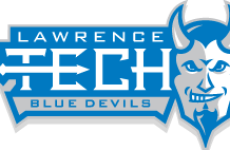“The Army-Navy rivalry is unlike any other football game; it’s hard to find words that really explain it,” New England Patriots and former Navy long snapper Joe Cardona says.
After surviving more than a century of fierce competition and a week full of pre-game pranks, the 116th Army-Navy game is set to take place this Saturday. Millions will tune in to watch the classic gridiron battle between the Midshipmen from Annapolis and the Black Knights from West Point, and fans will appear to be just as invested in the game as the players are. But at the end of the day, both sides can agree on one thing: the unique sense of comradery between the two service academies will carry on this year, like every other year, despite the final score.
“What separates it is that everybody on each sideline is heading in the same direction after this,” he says. “Then there’s that line that says, ‘it’s the only game where everyone on the field is willing to die for everyone watching,’ and it’s clichéd but it’s true.” – Chris Nichols
Dating all the way back to 1890, the first matchup between the two schools was taken by the much more experienced Navy team by a crushing score of 24-0. The game was bloody, extremely physical, and caused at least one player to spend over a week in the hospital recovering from concussions. Determined to redeem themselves, Army returned to Annapolis the next year and toppled Navy, winning 32-16. It’s what happened after that game that would define this rivalry even a century later.
After Army and Navy beat each other up on the field, they came together and attended a celebratory dance at the Navy boathouse that night. The teams congratulated each other, and the stars of the game, Army’s Dennis Michie, who is now considered the father of Army football, and Navy’s Worth Bagley, shook hands and wished each other well. Eight years later, the two would make the ultimate sacrifice. Both Bagley and Michie lost their lives in 1898 during the Spanish-American War; Michie at the Battle for Santiago and Bagley while aboard the USS Winslow where he was the only Naval officer killed during conflict. But their legacies live on every time the Midshipmen and the Black Knights face off on the playing field.
It’s the type of comradery and respect that Michie and Bagley showed that make up the backbone of both the Army and Navy athletic programs. Every year, once the game clock expires, and regardless of who comes out on top, both teams show sportsmanship, comradery, and brotherhood to one another. They meet at the 50-yard line and turn to face the losing team’s student section to sing their alma mater. Then, both teams turn to face the winning team’s student section and sing their alma mater. It’s a great reminder that despite the rivalry, Army and Navy are ultimately on the same team. It’s a tradition that has carried on for over 100 years.
“It’s a hard fought match, but after it we come together because there are a lot of great guys on the other side. You have full confidence in those men after you play against them that they’re going to do their job when we fight in the same missions alongside each other.” – Joe Cardona
“Having come across Army graduates that I played against, we know we have that common bond of being able to play in the game and be a part of something special,” Cardona says. “It’s a hard fought match, but after it we come together because there are a lot of great guys on the other side. You have full confidence in those men after you play against them that they’re going to do their job when we fight in the same missions alongside each other.”
Chris Nichols, a fullback who played for Army before graduating in 2008, echoes Cardona’s thoughts on what makes this rivalry different from others.
“What separates it is that everybody on each sideline is heading in the same direction after this,” he says. “Then there’s that line that says, ‘it’s the only game where everyone on the field is willing to die for everyone watching,’ and it’s clichéd but it’s true.”
So what’s it like to actually play in perhaps the most unique rivalry in all of football? Nichols says it’s quite an environment and experience to be a part of.
“It’s an incredible atmosphere to run onto. It’s a sold out crowd at the stadium and you know you’re the only game on that weekend and millions are watching at home,” he says. “It’s a pretty cool and surreal feeling.”
For Cardona, the day is a great display of the young men that represent a lot of what is good in our country.
“During the game there’s a very high level of competition and it’s a fight,” he says. “I think that’s what we did out there – we showed the American people we’re out there to put it all on the line and… show the toughness and revolve that the academies instill in the quality officers that graduate.”
But Cardona also sees the annual matchup, coined “America’s Game”, as being much more than just a contest between the two teams.
“You have the entire nation watching that one game, and it’s been such a big game in our nation’s history,” Cardona says. “Especially after big events, like the assassination of JFK and 9/11, it did a lot to bring our nation together.”
As for the more playful aspect of the comradery between the two service academies, Army cadets have an extensive history of kidnapping Navy’s Bill the Goat mascot, a live goat that is housed at a farm near Navy’s campus, and even tied one up outside the Pentagon. Meanwhile, Navy midshipmen have a longstanding tradition of pulling pranks and performing “raids” on the West Point campus, once dropping a helicopter full of ping pong balls on cadets. Every year there are a few midshipmen and cadets who spend a semester at the other service academy, and during Army/Navy Week, those poor cadets and midshipmen get the brunt of the pranks. One midshipman who was studying at West Point, Nichols says, came back to his barracks only to find his entire bedroom furniture set had been moved outside and set up just as it had been in his room.
Although Cardona and Nichols’ teams were locked in to the upcoming game during the week of festivities and pranks, they both say it’s still a very entertaining time to be around campus. When all is said and done, pranks are pulled in good spirit and add to the lighthearted relationship the two schools have off the field. They may take out aggressions during the game, but Army and Navy players recognize their shared experience of playing college football for a service academy.
Unlike traditional college athletes, Army and Navy student-athletes are required to maintain the highest academic and military standards while juggling the pressures of athletics. Their schedules are packed and there’s no room for slacking off. Instead, they take on the daily grind of coursework and formations with the same intensity that they do their workouts and practices. Service academy student-athletes know that people depend on them to get things done, and they don’t take that responsibility lightly.
“Playing for a service academy, you take 15 credits each semester, more than the NCAA minimum, as well as military requirements which you have to meet,” says Cardona. “You have a lot of standards you have to meet, whether they’re academic or on the field. There are a lot of long days, sure, but it’s meant to prepare us for something more and I think it does just that.”
Nichols, who majored in Civil Engineering, actually took 22 credits each semester and says it was tough, but developed skills for prioritizing when he had, “a million things to work on.”
Going into Saturday’s game, Navy is looking to keep their winning streak alive; they’ve come out victorious for the last 14 years against Army. An Army team with a losing record hasn’t beaten a Navy team with a winning record since 1899. This year, Army is clinging to a winning record at 6-5, and they’re intent on breaking (9-2) Navy’s decade-long winning streak in the rivalry.
“The Army-Navy rivalry is unlike any other football game; it’s hard to find words that really explain it,” New England Patriots and former Navy long snapper Joe Cardona says.
Whatever the outcome, the two service academies are both committed to maintaining tradition. Last year, Army and Navy agreed to keep the game on the second weekend of December, the same weekend it’s been held on for years. With the College Football Playoff rankings being revealed the weekend before the rivalry game, both schools risk being left out of the playoffs in order to keep the date of their matchup the same. The rivalry is so ingrained in each academy’s history that they’re willing to put their programs’ national title chances on the line in order to preserve tradition.
This year, like every year before, Army and Navy will leave it all on the field. They’ll rely on months of preparation and pure grit as they try to shut down their opponent. And then, when the game clock runs out and the numbers on the scoreboard are ready to be etched into the record books, both teams will come together. They’ll walk, as one, first to the losing team’s side of the stadium and then to the winner’s, and sing their alma maters. Fans and players will cry tears of joy and defeat, laugh in harmony at the antics and pre-game pranks the rivalry brings, and sing in unison knowing they just took part in a special moment that will live on for years to come.















